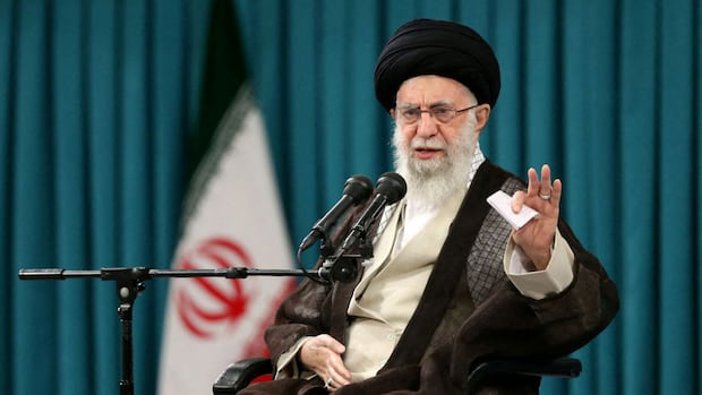
Iran Threatens “All-Out War” Over U.S. Involvement
Iran vows “all-out war” if the U.S. intervenes in the Israel conflict, escalating a crisis shaped by decades of attacks on Americans and new Israeli airstrikes targeting Iran’s nuclear program.
Iran Issues Dire Warning as Nuclear Dispute Intensifies
The Iranian government has issued a stark warning to the United States, declaring that any American intervention in the ongoing conflict with Israel would lead to “all-out war” across the region. As Israeli airstrikes struck key Iranian sites overnight, Iran's Foreign Ministry spokesman Esmail Baghaei cautioned that U.S. military action would dramatically expand the crisis. "Any American intervention would be a recipe for an all-out war in the region," Baghaei said in a televised interview.
Israeli warplanes targeted Iranian infrastructure believed to be central to its uranium enrichment efforts, following weeks of stalled diplomatic negotiations between Washington and Tehran. President Donald Trump has linked the timing of Israel’s campaign to a 60-day deadline he set for diplomatic progress, but Iran’s ambassador to Geneva, Ali Bahreini, remained defiant. Bahreini insisted that Iran “will continue to produce the enriched uranium as far as we need for peaceful purposes,” rejecting demands to end the country’s disputed nuclear program.
Despite the Israeli strikes, Iranian officials claim their nuclear research remains undeterred, with scientists continuing work at multiple sites. Israel’s military reports over 1,100 targets struck inside Iran in six days, including a major centrifuge production facility and multiple weapons depots. The Israel Defense Forces (IDF) also announced the killing of Ali Shadmani, Iran’s “wartime chief of staff,” describing the operation as part of a broader effort to “remove threats from Iran” while fighting Iranian proxies such as Hamas in Gaza.
Israeli officials emphasize their goal to prevent Iran from building a nuclear weapon, citing concerns that Tehran is enriching uranium close to weapons-grade levels. While U.S. intelligence agencies have said they do not believe Iran is currently pursuing a nuclear bomb, Iran’s production of uranium enriched up to 60%—just below the threshold for weaponization—has drawn sharp criticism from both Washington and Jerusalem.
Decades of Iranian Attacks on Americans Fuel Anxiety
The current standoff is the latest chapter in a long history of violent confrontations between Iran and the United States. Senator Tom Cotton characterized Iran’s campaign against the U.S., Israel, and Western interests as a “forever war” that began with the 1979 U.S. Embassy hostage crisis. Over the decades, Iranian operatives and proxies have orchestrated bombings, kidnappings, and assassination plots that have killed hundreds of Americans.
Notable incidents include the 1983 Beirut embassy and barracks bombings, which killed 241 U.S. service members, and the 1996 Khobar Towers attack in Saudi Arabia, for which a U.S. court later found Iran liable. Pentagon reports attribute the deaths of over 600 U.S. troops in Iraq to Iranian-backed militias, and court rulings have held Tehran responsible for supporting attacks in Afghanistan as well. Recent years have seen Iranian proxies target U.S. bases with missiles and drones, resulting in casualties as recently as January 2024.
The persistent threat extends to kidnapping and assassination attempts, with cases such as the 2007 disappearance of FBI agent Robert Levinson and the murder-for-hire plot targeting President Trump. The Department of Justice recently announced charges against Iranian agents for targeting American citizens and leaders.
U.S. and Allies Weigh Response as Risks Mount
As the crisis deepens, President Trump has signaled increasing U.S. involvement, including the deployment of additional military assets to the Middle East. He has called for the “complete surrender” of Iran while emphasizing that the U.S. maintains “complete and total control of the skies over Iran.” The White House has warned Iran against further escalation, and Israeli leaders insist they will not rest until all hostages held by Iranian proxies are released.
With decades of violence as context, the region stands at a critical crossroads. Iran’s leaders remain defiant, vowing to continue their nuclear program and resist international demands, while Israel and the U.S. weigh military and diplomatic options. As missile strikes, threats, and warnings escalate, the world watches closely for the next move in a conflict that could reshape the security landscape of the Middle East.






